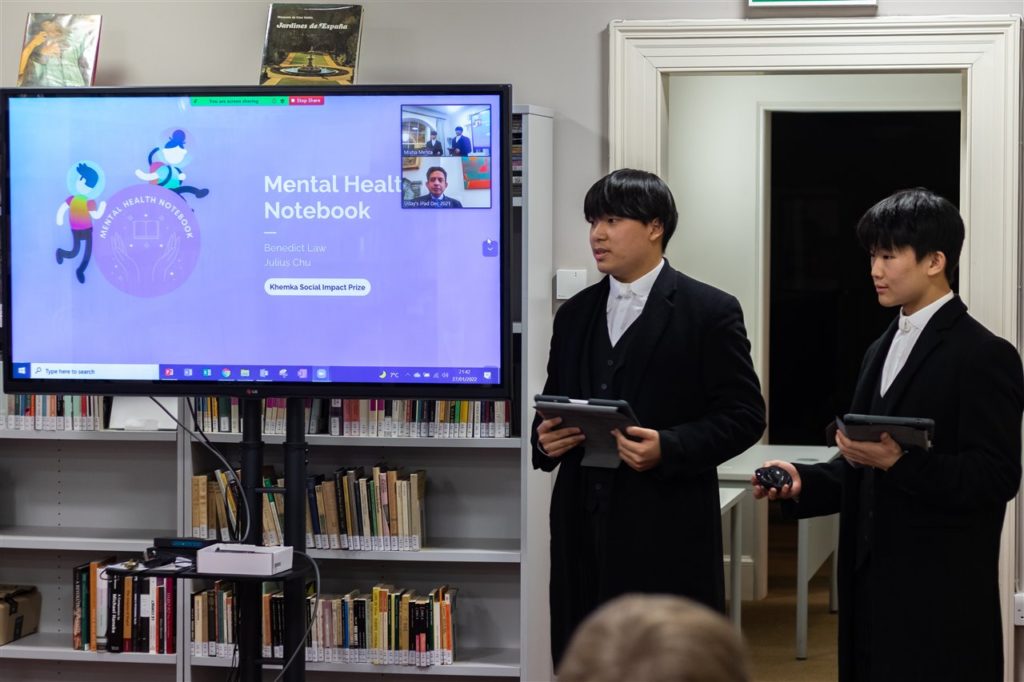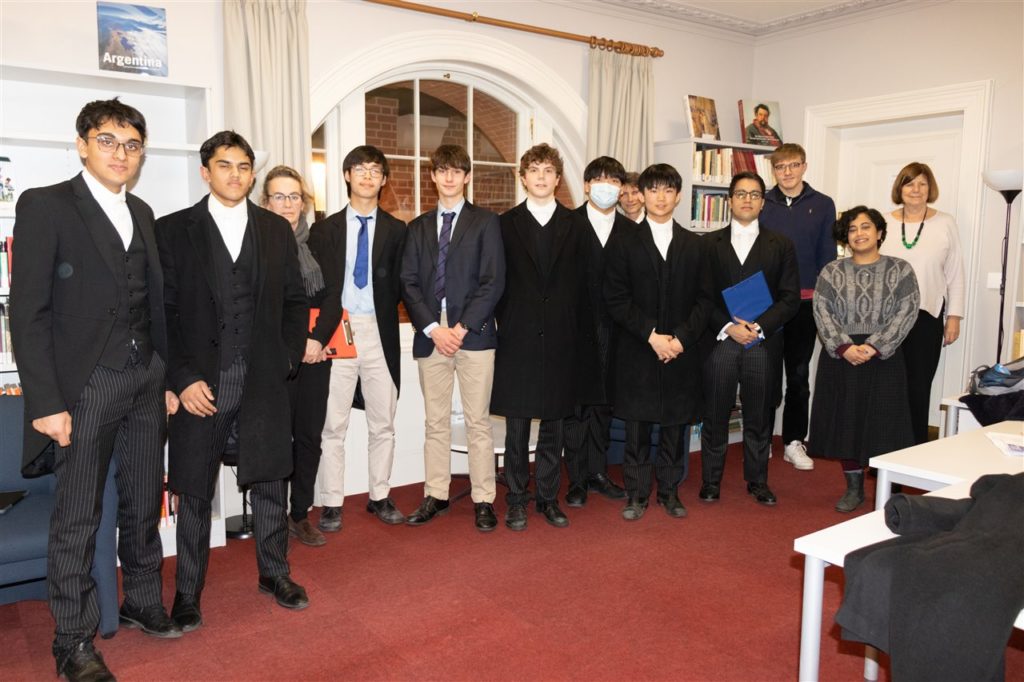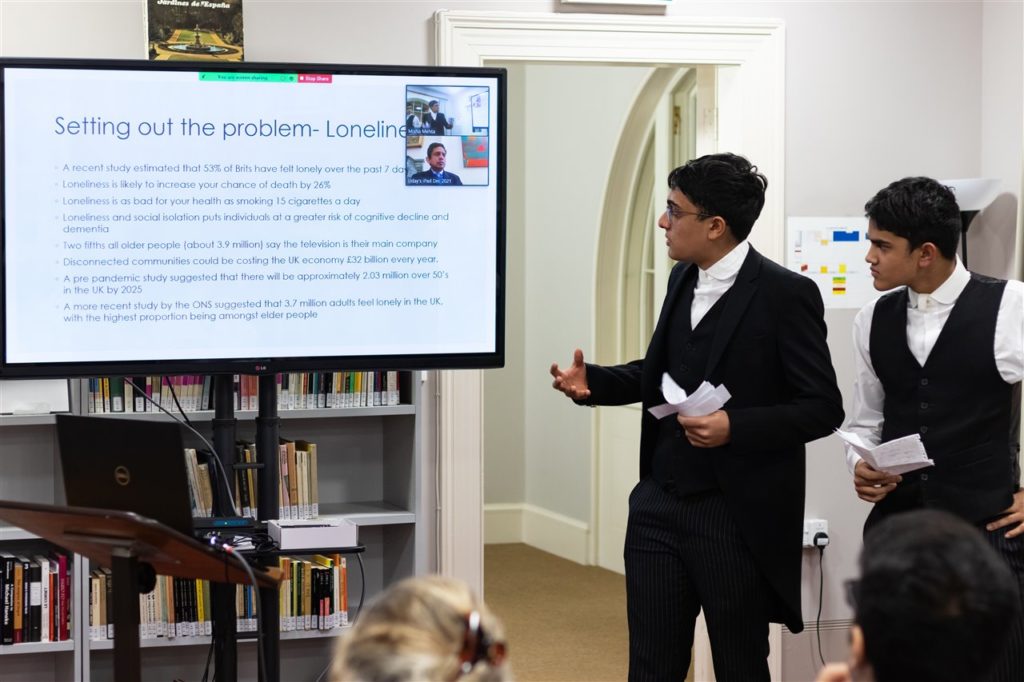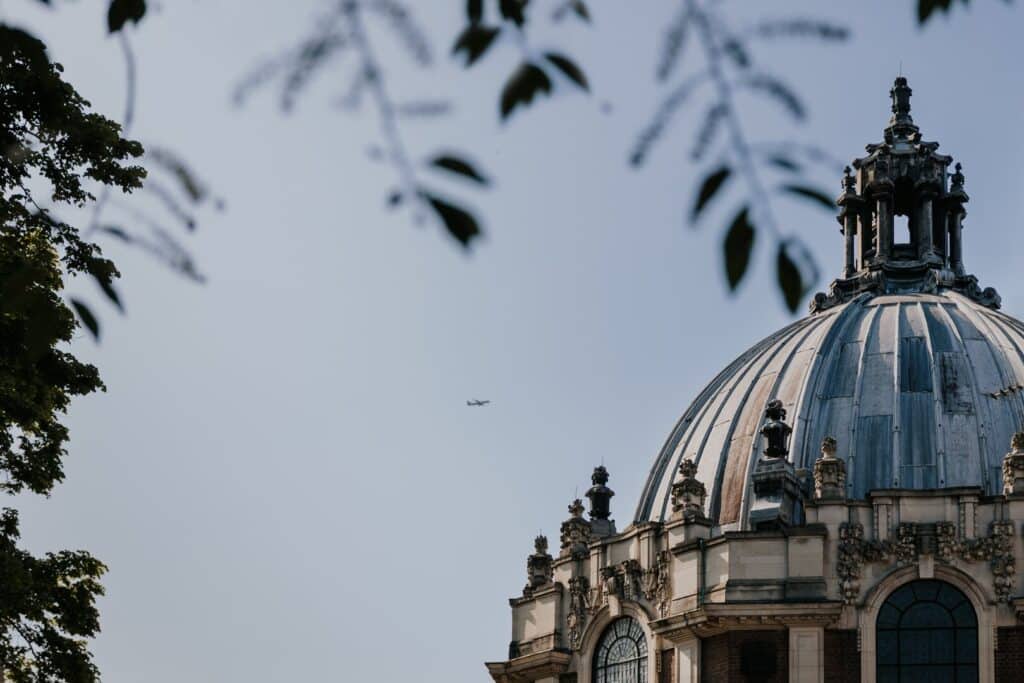This year’s Khemka Social Impact Prize saw presentations of the highest standards yet. Four teams presented their entrepreneurial solutions to local or global social problems to a panel of judges both in person and over Zoom.
Ashley L, Rufus D, and Mylo M explained their plan for helping homeless people get back on their feet. Working with the Windsor Homeless Project, a local charity, they devised a plan to empower homeless citizens whilst also engaging Etonians. Their five-phase plan included collecting donations from the Eton community, spreading awareness of their project, assembling their team, setting up a shop, and expanding the programme. The overall goal was to set up a stall where homeless citizens could sell donated items, keeping some of the profits and learning the skills needed to find and maintain employment. The judges were in awe of the amount of work that had gone into the plan, especially the effort of the group to engage with a well-established local charity.
Brothers Amogh and Dev K impressed the judges by being the only Year 11 team, delivering a polished and professional proposal. Their proposed app, Buddies, would help combat loneliness amongst those aged 50+ by bringing together people with shared interests. Their market research showed that no app exists in the UK specifically for those over the age of 50, with a simple and easy to use design. With statistics from a recent study showing that 53% of Brits have felt lonely over the past seven days, Buddies would help those with shared interests find friends their own age.
Ludovico M focused his efforts internally, by developing a plan to share Eton’s STEM resources with the wider community. His use of statistics demonstrated an acute shortage of STEM teachers in both primary and secondary education, explaining the significant divide in STEM opportunities and attainment levels between high and low-income pupils. His plan consisted of three parts: ‘STEMposium days’, where groups of students from a selection of schools would come into Eton for a day full of STEM activities; a mentorship program where Year 12 scientists would mentor pupils aged 10 to 13; and ‘Ideathons’, day-long events where teams come up with solutions to local or global problems. The judges were very impressed by how feasible this idea was, and the ease with which it could be integrated into the existing Community Engagement program at Eton.
Finally, Ben L and Julius C presented their project, Mental Health Notebook, which they started along with fellow Etonian Amr M, as well as other friends in their home country of Hong Kong. Mental Health Notebook started on Instagram as a support system for teenagers suffering from mental health issues. Through supportive images, stories, and personal anecdotes, they have created a network of 15,000 teenagers who want to be a part of their organisation. They have also created newsletters, podcasts, and a tutoring program. In order to expand, they have been working with Number 22 Counselling, a local charity that provides free therapy sessions to young people. Their end goal is to be able to provide free therapy to any young person who needs it, as well as pushing for legislation that will help support the mental health of young people in schools. The judges were very impressed by how much this team had already accomplished.
The judges had a difficult time deciding on the recipients of this year’s Social Impact Prize, with deliberation taking at least 20 minutes. In the end it was decided that two prizes should be awarded, one for a group that focused on a local problem and one which focused on a global problem. Congratulations to Ashley, Rufus and Mylo for their plan to collaborate with the Winter Homeless Project, and the architects of the Mental Health Notebook, Ben, Julius and Amr!
Well done to all who took part and a big thank you to the judges, Mr Uday Khemka OE, Bursar Janet Walker, MPM, DEA, Oscar G and Haris A.






